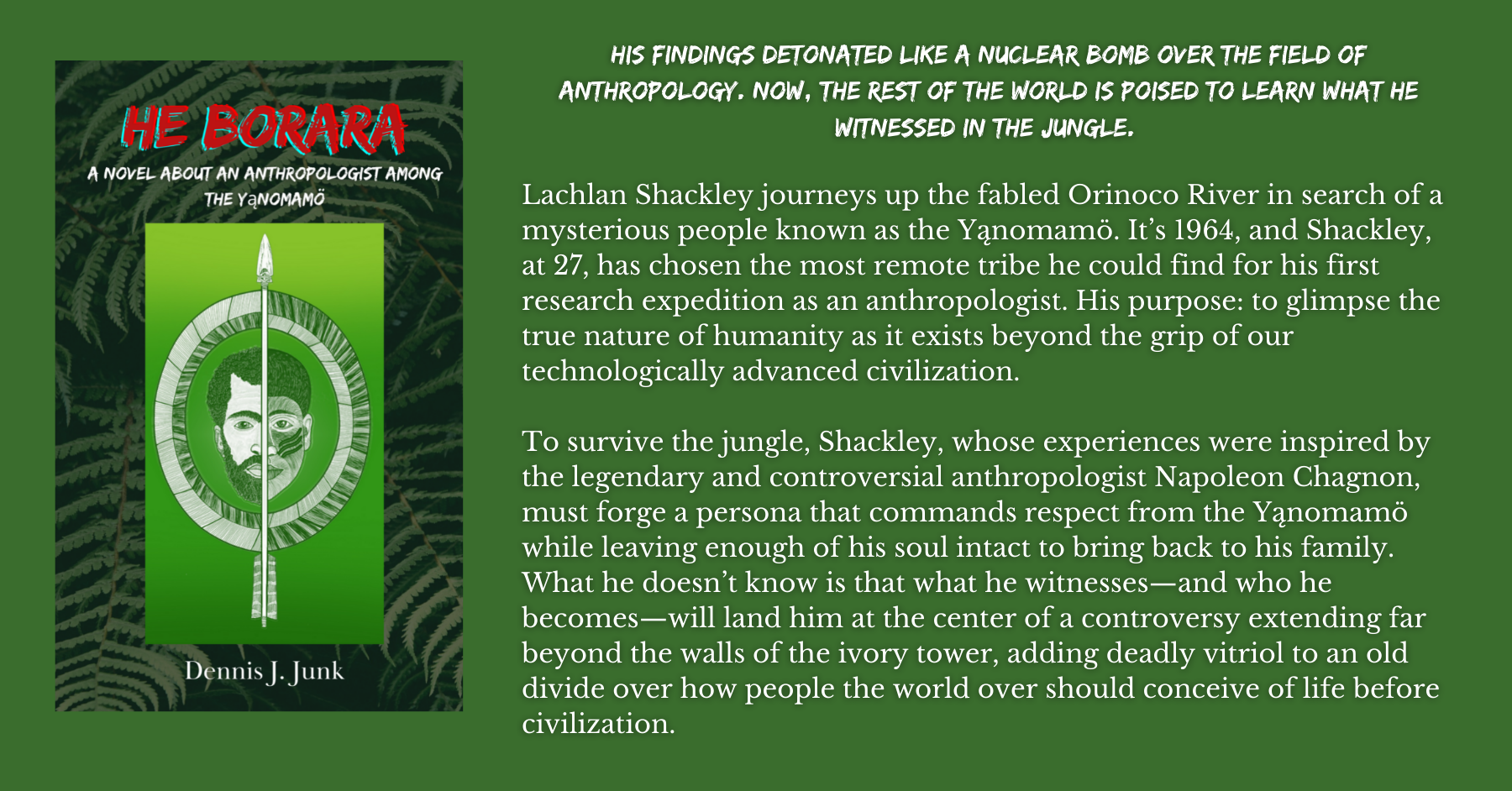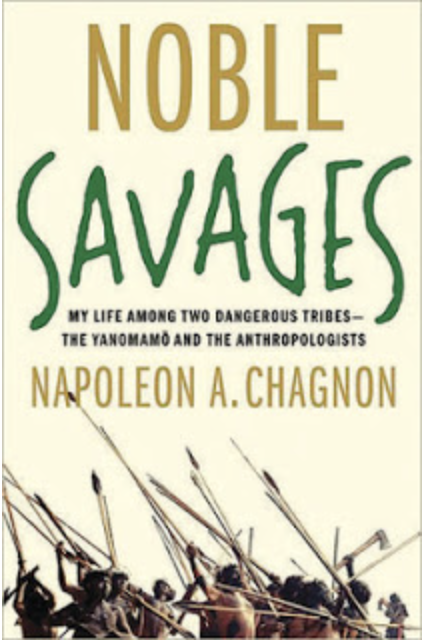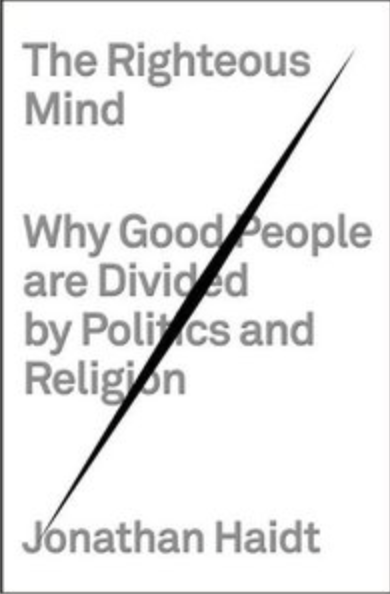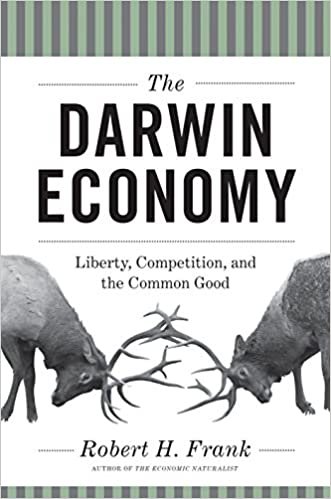
THE STORYTELLING APE
Essays and Book Reviews on Evolutionary Psychology, Anthropology, the Literature of Science and the Science of Literature
The relationship between Tom and Ashley (Monster Face) heats up as Jim keeps getting in deeper and deeper, even though Marcus is looking ever more shady.
Aspiring author Jim Conway is recruited by entrepreneur Marcus Friedman to craft stories about the haunted houses his business arranges tours of for Halloween. Jim’s first assignment turns out a bit differently from what everyone expected.
As disappointing as the second half of “War and Peace” is, Tolstoy genius when it comes to perspective makes the first half one of the truly sublime reading experiences on offer to lovers of literature.
Brett Martin’s book “Difficult Men” contains fascinating sections about the history and politics behind some of our favorite shows. But whenever he reaches for deeper insights about the shows’ appeal, the results range from utterly banal to unwittingly comical. The reason for his failure is his reliance on politically motivated theorizing, which is all too fashionable in academia.
Kate Atkinson’s “Life after Life” is absorbing and thought-provoking. But it also leaves the reader feeling wrung out. The issue is that if you’re going to tinker with one element of storytelling, the other elements must rock solid to hold the entire structure together.
Is violence really declining? How can that be true? What could be causing it? Why are so many of us convinced the world is going to hell in a hand basket? Steven Pinker attempts to answer these questions in his magnificent and mind-blowing book.
There’s something fitting about the almost even split among the movie critics sampled on Rotten Tomatoes—and the much larger percentage of lay viewers who liked the movie (48% vs. 84% as of now). This is because, like the novel itself, Luhrmann’s vision of Gatsby is visionary, and, as Denby points out, when the novel was first published it was panned by most critics.
With “Sabbath’s Theater,” Philip Roth has called down the thunder. The story does away with the concept of a likable character while delivering a wildly absorbing experience. And it satirizes all the woeful facets of how literature is taught today.
Frans de Waal’s work is always a joy to read, insightful, surprising, and superbly humane. Unfortunately, in his mostly wonderful book, “The Bonobo and the Atheist,” he carts out a familiar series of straw men to level an attack on modern critics of religion—with whom, if he’d been more diligent in reading their work, he’d find much common ground with.
Napoleon Chagnon was targeted by postmodern activists and anthropologists, who trumped up charges against him and hoped to sacrifice his reputation on the altar of social justice. In retrospect, his case looks like an early warning sign of what would come to be called “cancel culture.” Fortunately, Chagnon was no pushover, and there were a lot of people who saw through the lies being spread about him. “Noble Savages” is in a part a great adventure story and in part his response to the tragic degradation of the field of anthropology as it succumbs to the lures of ideology.
Sarah Blaffer Hrdy’s book “Mother Nature” was one of the first things I ever read about evolutionary psychology. With her new book, “Mothers and Others,” Hrdy lays out a theory for why humans are so cooperative compared to their ape cousins. Once again, she’s managed to pen a work that will stand the test of time, rewarding multiple readings well into the future.
Maria Konnikova’s book “Mastermind: How to Think Like Sherlock Holmes” got me really excited because if the science of psychology is ever brought up in discussions of literature, it’s usually the pseudoscience of Sigmund Freud. Konnikova, whose blog went a long way toward remedying that tragedy, wanted to offer up an alternative approach. However, though the book shows great promise, it’s ultimately disappointing.
Ian McEwan is one of my literary heroes. “Atonement” and “Saturday” are among my favorite books. But a lot of readers trip over the more experimental aspects of his work. With “Sweet Tooth,” he once again offers up a gem of a story, one that a disconcerting number of reviewers missed the point of.
It’s Halloween and the kids are being a little mean with their jokes about someone who’s overweight. So it’s time for a story about how quickly anyone’s life can spiral out of control.
Moss-Racusin et al.’s study should not be summarily dismissed, but let’s not claim it’s more important than it really is just because it produced the results the STEM fems were hoping for. Far too many people assume that feminism can only be good for women and good for science. But if discrimination really doesn’t play that big a role for women in science—which everyone should acknowledge the current weight of evidence suggests is the case—the infusion of gender politics has the potential to cause real harm.
Anthropologist Jean Briggs discovered one of the keys to Inuit peacekeeping in the style of play adults engage use to engage children. She describes the games in her famous essay, “‘Why Don’t You Kill Your Baby Brother?’ The Dynamics of Peace in Canadian Inuit Camps,” and in so doing, probably unknowingly, lays the groundwork for an understanding of how our love of fiction evolved, along with our moral sensibilities.
Walter White from “Breaking Bad” stands alongside other anti-heroes, both in pop culture and in literary classics like “Lolita” and “Heart of Darkness,” raising for us the question of why we find a character’s decent into evil so riveting.
A famous scene in “Notes from the Underground” echoes a famous study comparing people’s responses to an offense. What are the implications for behavior and personality of having low social status, and how does that play out in fiction? Is Poe’s “Imp of the Perverse” really just an example of our inborn defiance, our raging against the machine?
Clare loves climbing trees, so much that people think she’s crazy. Then one day while climbing, she makes a discovery, and it changes everything in the small town where she grew up.
In “Moral Origins,” anthropologist Christopher Boehm lays out the mind-blowing theory that humans evolved to be cooperative in large part by developing mechanisms to keep powerful men’s selfish impulses in check. These mechanisms included, in rare instances, capital punishment. Once the free-rider problem was addressed, groups could function more as a unit than as a collection of individuals.
Eliot Sober and David Sloan Wilson’s “Unto Others” lays out a theoretical framework for how selection at the level of the group could have led to the evolution of greater cooperation among humans. They point out the mistake many theorists make in thinking because evolution can be defined as changes in gene frequencies, it’s only genes that matter. But that definition leaves aside the question of how traits and behaviors evolve, i.e. what dynamics lead to the changes in gene frequencies. Steven Pinker failed to grasp their point.
What is the unit of selection? Richard Dawkins famously argues that it’s genes that are selected for over the course of evolutionary change. Stephen Jay Gould, meanwhile, maintained that it must be individuals and even sometimes groups of individuals. In their fascinating back and forth lies the foundation of today’s debates about multi-level selection theory.
If you can convince people you know how to broaden the contours of selfhood and show them the world as they’ve never experienced it before, if you can give them the sense that their world is expanding, they’ll at the very least want to keep talking to you so they can keep the feeling going and maybe learn what your secret is. Much of this desire to better ourselves is focused on our social lives, and that’s why duping delight is so seductive—it gives us a taste of what it’s like to be the charismatic and irresistible characters we always expected ourselves to become.
Especially in this age where everything, from novels to social media profiles, are scrutinized for political wrong think, it’s important to ask how so many people can enjoy stories with truly reprehensible protagonists. Anthony Burgess’s “A Clockwork Orange” provides a perfect test case. How can readers possible sympathize with Alex?
Robert Cialdini describes the phenomenon of social proof, whereby we look to how others are responding to something before we form an opinion ourselves. What are the implications of social proof for our assessments of literature? Daniel Kahneman describes two competing “selves,” the experiencing self and the remembering self. Which one should we trust to let us know how we truly feel about a story?
That the diagnostic categories are necessarily ambiguous and can’t be tied to any objective criteria like biological markers has been much discussed, as have the corruptions of the mental health industry, including clinical researchers who make their livings treating the same disorders they lobby to have included in the list of official diagnoses. What’s not being discussed, however, is the propensity in humans to take on roles, to play parts, even tragic ones, even horrific ones, without being able to recognize they’re doing so.
Does practicing science rob one of humanity? Why is it that, if reading fiction trains us to take the perspective of others, English departments are rife with pettiness and selfishness? Keith Oately is trying to make the study of literature more scientific, and he provides hints to these riddles and many others in his book “Such Stuff as Dreams.”
David Grann’s “The Lost City of Z,” about Percy Fawcett’s expeditions to find a legendary pre
Columbian city, is an absolute joy to read. But it raises questions about what it is we hope our favorite explorers find in the regrown juggles.
If a George Bush or a Mitt Romney swaggers around projecting his strength by making threats and trying to push around intergovernmental organizations, some people will naturally be intimidated and back down. But those probably weren’t the people we needed to worry about in the first place.
Upon entering a graduate program in literature, I was appalled to find that Freud’s influence was alive and well in the department. Didn’t they know that nearly all of Freud’s theories have been disproven? Didn’t they know psychoanalysis is pseudoscience?
A poem about how true some of the things young people think about old people are… but also about how true what old people think of young people is.
A couple meets a nice old lady who lives in the apartment behind theirs. Little do they know they’ll end up adopting her cat when she dies. This is the setup to the story a man tells his girlfriend when she asks him to improvise one. It’s good enough to surprise them both.
Henry James famously wrote, “The only obligation to which in advance we may hold a novel without incurring the accusation of being arbitrary, is that it be interesting.” But how does one be interesting? The answer probably lies in staying one step ahead of your readers, but every reader moves at their own pace.
For every John Galt, Tony Robbins, and Scheherazade, we may need at least half a Proust. We are still, however, left with quite a dilemma. Some authors really are just assholes who write worthless tomes designed to trick you into wasting your time. But some books that seem impenetrable on the first attempt will reward your efforts to decipher them.
David Lurie’s position in Disgrace is similar to that of John Proctor in The Crucible (although this doesn’t come out nearly as much in the movie version). And it’s hard not to see feminism in its current manifestations—along with Marxism and postcolonialism—as a pernicious new breed of McCarthyism infecting academia and wreaking havoc with men and literature alike.
The Storytelling Animal is not groundbreaking. But the style of the book contributes something both surprising and important. Gottschall could simply tell his readers that stories almost invariably feature come kind of conflict or trouble and then present evidence to support the assertion. Instead, he takes us on a tour from children’s highly gendered, highly trouble-laden play scenarios, through an examination of the most common themes enacted in dreams, through some thought experiments on how intensely boring so-called hyperrealism, or the rendering of real life as it actually occurs, in fiction would be. The effect is that we actually feel how odd it is to devote so much of our lives to obsessing over anxiety-inducing fantasies fraught with looming catastrophe.
Possession can be read as the novelist’s narrative challenge to the ascendant critical theories, an “undermining of facile illusions” about language and culture and politics—a literary refutation of current approaches to literary criticism.
The paradox of art is that the artist conveys more of him or herself by focusing on the subject of the work. The artists who cast the most powerful spells are the ones who can get the most caught up in things other than themselves. Falling in love exposes as much of the lover as it does of the one who’s loved.
Jonathan Haidt extends an olive branch to conservatives by acknowledging their morality has more dimensions than the morality of liberals. But is he mistaking what’s intuitive for what’s right? A critical, yet admiring review of The Righteous Mind.
Identities can be burdensome, as Parks intimates his is when he reveals his story has brought him to a place where he’s making a living engaging in an activity that serves no need—and yet he can’t bring himself seek out other employment. In an earlier, equally fascinating post titled "The Writer's Job," Parks interprets T.S. Eliot's writing about writers as suggesting that "only those who had real personality, special people like himself, would appreciate what a burden personality was and wish to shed it."
We can’t help feeling strong positive emotions toward altruists. Katniss wins over readers and viewers the moment she volunteers to serve as tribute in place of her younger sister, whose name was picked in the lottery. What’s interesting, though, is that at several points in the story Katniss actually does engage in purely rational strategizing. She doesn’t attempt to help Peeta for a long time after she finds out he’s been wounded trying to protect her—why would she when they’re only going to have to fight each other in later rounds?
For James Wood, fiction is communion. This view has implications about what constitutes the best literature—all the elements from description to dialogue should work to further the dramatic development of the connection between reader and character.
The “Talk of the Town” pieces in The New Yorker have a distinctive style. Here, I write a fictional one about a man who’s gradually replacing parts of himself to potentially become immortal.
From the intro to my master’s thesis where I explore the evolved psychological dynamics of storytelling and witnessing, with a special emphasis on the paradox that the most compelling characters are often less than perfect human beings. Why do audiences like Milton’s Satan, for instance? Why did we all fall in love with Tyler Durden from Fight Club? It turns out both of these characters give indications that they just may be more altruistic than they appear at first.
Why do readers tend to admire Satan in Milton’s Paradise Lost? It’s one of the instances where a nominally bad character garners more attention and sympathy than the good guy, a conundrum I researched through an evolutionary lens as part of my master’s thesis.
The story of human warmth defying the frigid, impersonal harshness of a colorless,lifeless cosmos—in trying desperately to please, just to please, those pictures offend—that’s only half the story.
Kahneman has no faith in our ability to clean up our thinking. He’s an expert on all the ways thinking goes awry, and even he catches himself making all the common mistakes time and again. So he proposes a way around the impenetrable wall of cognitive illusion and self-justification. If all the people gossiping around the water cooler are well-versed in the language of biases and heuristics and errors of intuition, we may all benefit because anticipating gossip can have a profound effect on behavior. No one wants to be spoken of as the fool.
A poem about the effects of reading fiction on one’s life and perspective, inspired by Charles Dickens.
A poem inspired by C.K. Williams about what happened when my childhood friend’s parents got an invisible fence for their dog Gracie.
A poem about a graduate student in psychology sees a woman with Parkinson’s while working as a server. It sets off a series of reflections and revelations. Another piece inspired by C.K. Williams (along with Ian McEwan).
What began as an exercise in SEO (search engine optimization) became such a success it’s probably my most widely read piece of writing (somewhat to my chagrin). Apparently, my background in psychology and long history of dating equipped me with some helpful insight. Bottom line: stay away from people playing zero-sum games. And don’t give away too much too soon. You’ll have to read to find out more about what made this post so popular.
As long as the group they belong to is small enough for each group member to monitor the actions of the others, people can maintain strict egalitarianism, giving up whatever dominance they may desire for the assurance of not being dominated themselves. Satan very likely speaks to this natural ambivalence in humans. Benevolent leaders win our love and admiration through their selflessness and charisma. But no one wants to be a slave.
So profound is humans’ concern for their reputations that they can even be nudged toward altruistic behaviors by the mere suggestion of invisible witnesses or the simplest representation of watching eyes. The billboard featuring Dr. Eckleburg’s eyes, however, holds no sway over George’s wife Myrtle, or the man she has an affair with. That this man, Tom Buchanan, has such little concern for his reputation—or that he simply feels entitled to exploit Myrtle—serves as an indictment of the social and economic inequality in the America of Fitzgerald’s day.
As in, put a tax on demagoguery, defined here as purposely misleading your audience. I haven’t considered this idea in a long time. The main issue I have now is that no one would agree on who the arbiters of factualness would be. Even I have some problems with the fact-checking organizations I mentioned back when I wrote this.
Antler size places each male elk in a relative position; in their competition for mates, absolute size means nothing. So natural selection—here operating in place of Smith’s invisible hand—ensures that the bull with the largest antlers reproduces and that antler size accordingly undergoes runaway growth. But what’s good for mate competition is bad for a poor elk trying to escape from a pack of hungry wolves.
Charm entails making people feel good so they’ll like you; anti-charm, then, is making people feel bad so they’ll recognize you as someone who doesn’t give a damn whether they like you or not. In the same way charm often backfires by making the charmer seem unworthy, anti-charm often has the counter-intuitive effect of signaling high status and so making the anti-charmer seem eminently worth winning over.
The house I moved into as a teenager had a dark past. A young boy we heard about had drowned while living there, and after moving in I routinely heard sounds, scratching outside the wall, and once moaning. It was an interesting time of my childhood, one I look back to in slight horror—and deep nostalgia.
A short, fictional vignette about two guys talking about relationships, failed ambition, getting older and the profound implications of diminishment with age, inspired by The Sun Also Rises.













The field of anthropology is divided into two rival factions, the postmodernists and the scientists—though the postmodernists like to insist they’re being scientific as well. The divide can be seen in critiques of Jared Diamond’s “The World until Yesterday.”